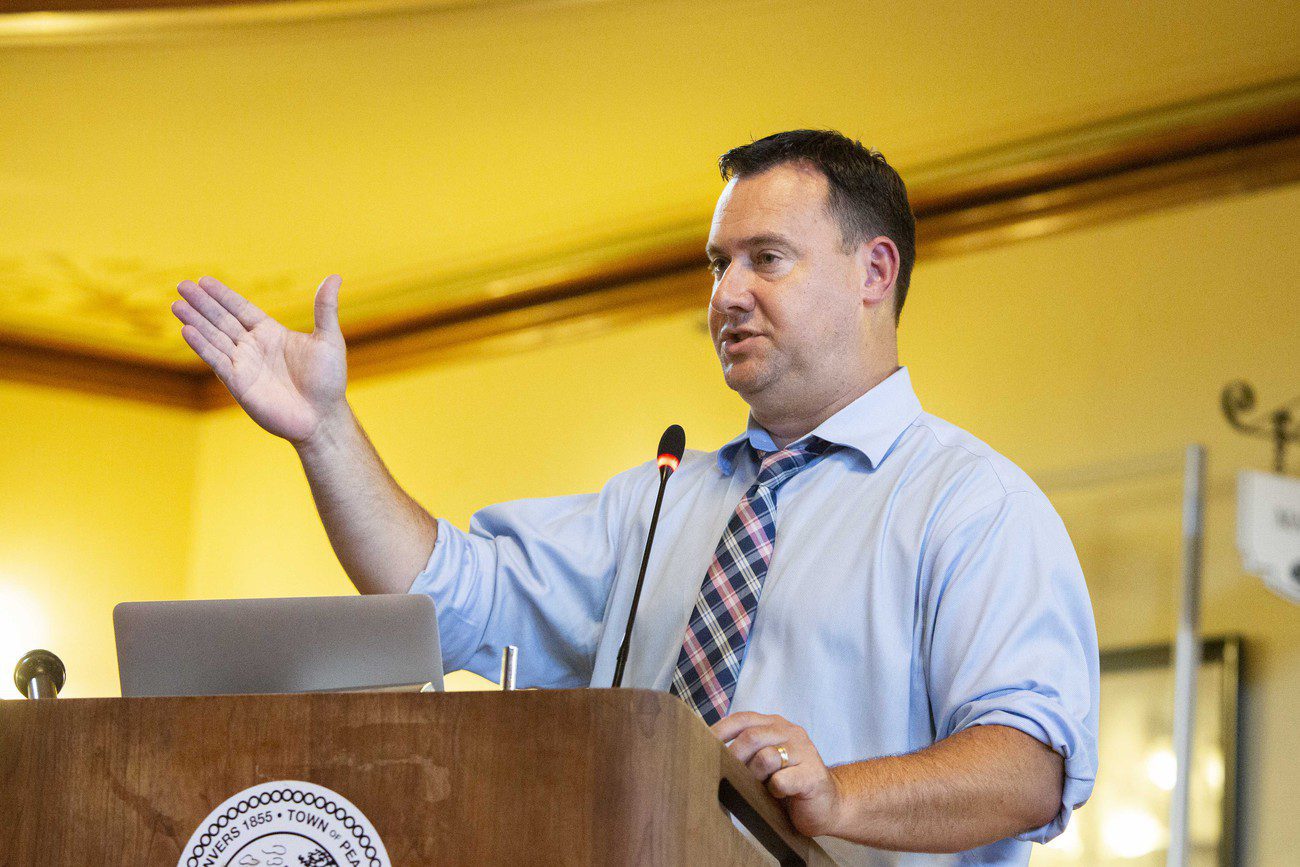PEABODY — Mayor Edward A. Bettencourt, Jr’s $85.3 million proposed fiscal year 2023 city budget is set to be discussed by the city council at a special meeting Tuesday night.
The proposal, which reflects a roughly $2.4 million increase on the city’s fiscal year 2022 budget, was submitted on June 16, according to a copy of the mayor’s budget presentation available on the city’s website.
In addition to the $85.3 million allocated for the city budget, Bettencourt also proposed an $83.3 million budget for the city’s schools — bringing the total for the proposal to roughly $179 million. The school budget reflects an increase of $7.1 million from the previous year, bringing the total increase proposed by Bettencourt to $9.5 million, good for a 5.8 percent increase.
Bettencourt’s proposal for the city’s schools will be voted on by the school committee.
The largest area of increase in spending in Bettencourt’s city budget is employee benefits, which he proposes a $1.3 million increase over the previous year. The additional $1.3 million will provide for $879,000 for retirement, $370,000 for insurance, and $50,000 for worker compensation.
Spending on human services and general government would fall if the proposed budget is adopted — with Bettencourt proposing a $361,000 cut to general government and a $133,000 cut to human services.
In Fiscal Year 2023, 50 cents of every budget dollar will be spent on education, 17 cents will be spent on employee benefits, 13 cents will be spent on public safety, and 7 cents will be spent on public works, according to the budget presentation.
“This budget helps continue our recovery from the covid pandemic, delivers the municipal services our residents and business owners expect, and maintains the affordability and quality of life for which Peabody is known throughout the region and across Massachusetts,” Bettencourt said in a statement.
The primary source of revenue in Bettencourt’s proposed budget is tax levies — with $114 million expected to come from taxes. However, the city “anticipates using approximately$3.5 million in ARPA Funding for Revenue Loss, $1 million from Free Cash and a $1.3 million increase in Local Revenue to Reduce the Tax Impact,” according to Bettencourt’s budget presentation.
Bettencourt said local revenues rebounded in the 2022 fiscal year, and the city projects revenue to continue to increase, approaching pre-pandemic levels.
Residential values in the city are expected to rise by 8 percent in the fiscal year, while commercial property values have been reduced by 39.2 million and “may need further reduction as values are finalized.”

